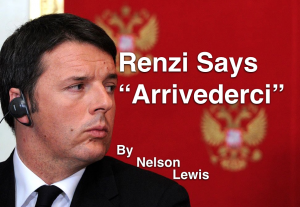 This weekend, drama began to unfold in Italy after PM Matteo Renzi’s constitution referendum plan was rejected by voters. An angry Renzi announced that he was stepping down. President Sergio Mattarella now needs to decide whether to appoint a new PM or hold elections. This instability has led to fears that Italy’s banking sector, which has been decreasing steadily since the 2008 financial crisis, is at further risk.
This weekend, drama began to unfold in Italy after PM Matteo Renzi’s constitution referendum plan was rejected by voters. An angry Renzi announced that he was stepping down. President Sergio Mattarella now needs to decide whether to appoint a new PM or hold elections. This instability has led to fears that Italy’s banking sector, which has been decreasing steadily since the 2008 financial crisis, is at further risk.
Renzi’s political future was based around trying to reform the Italian political system. He wanted to strengthen the central government and weaken the Senate. Not surprisingly, most of the country was opposed to this idea, since it gave the Prime Minister (in this case Renzi) too much power. The referendum was viewed by many as a chapter in the establishment vs. anti-establishment politics that’s been growing around the world. Renzi’s opposition was headed by various populist parties, headed by the so-called “Five Star” movement. Thanks to Renzi’s declining popularity, economic stagnation and a rising number of African immigrants, their anti-establishment message has caught on with many Italians. Sounds similar to the US, doesn’t it?
The rejection of Renzi’s referendum, 60-40, was an even bigger victory than a November opinion poll had predicted. Renzi will be resigning this week. Finance Minister Pier Carlo Padoan is expected to succeed Renzi, although Five Star has been getting ready to govern Italy. Although Italy isn’t expected to leave the UK, this is viewed as another blow to the EU. Both Five Star and another opposition party, the anti-immigrant Northern League, are opposed to the eurozone.
Stocks and the euro fell in early trading in Asia, although there weren’t any signs of panic. Nonetheless, some are afraid that this referendum could have long-term implications.
If you’d like to learn more, you can click here!
